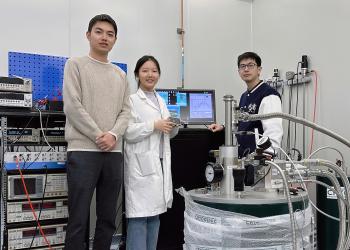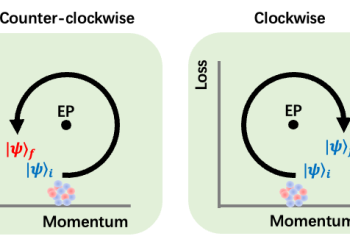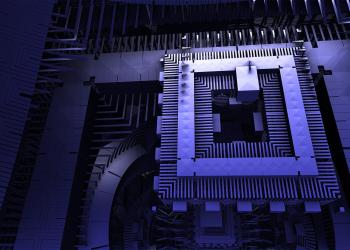News & Stories
2025

News
Meters Closer, Miles Faster: HKUST Engineering Researchers Introduce Novel Cryogenic In-Memory Computing Scheme to Bridge AI with Quantum Computing
Scholars at the School of Engineering of the Hong Kong University of Science and Technology (HKUST) have unveiled an innovation that brings artificial intelligence (AI) closer to quantum computing – both physically and technologically.
Led by Prof. SHAO Qiming, Assistant Professor at the Department of Electronic and Computer Engineering, the research team has developed a new computing scheme that works at extremely low temperatures. As a critical advancement in quantum computing, it can significantly reduce latency between artificial intelligence (AI) agents and quantum processors while boosting energy efficiency. The solution was made possible by utilizing a special technology known as magnetic topological insulator Hall-bar devices.
2022

News
HKUST researchers find new way of gaining quantum control from loss
Researchers at the Hong Kong University of Science and Technology (HKUST) have demonstrated a new way to control the quantum state through the loss of particles – a process that is usually avoided in the quantum device, offering a new way towards the realization of unprecedented quantum states.Manipulating a quantum system requires a subtle control of quantum state with zero imperfect operations, otherwise the useful information encoded in the quantum states is scrambled. One of the most common detrimental processes is the loss of particles that consist of the system. This issue has long been seen as an enemy of quantum control and was avoided through the isolation of the system. But now, researchers at the HKUST have discovered a way that could gain quantum control from loss in an atomic quantum system.The finding was published today in Nature Physics.
2019

News
HKUST Physicist Contributes to New Record of Quantum Memory Efficiency Bringing Quantum Computers Closer to Reality
A joint research team of The Hong Kong University of Science and Technology (HKUST) and The South China Normal University (SCNU) has set a new record of photonic quantum memory efficiency, pushing quantum computation a step closer to reality.
Like memories in computers, quantum memories are essential components for quantum computers – a new generation of data processors that obey quantum mechanics laws and can overcome the limitations of classical computers. They may push boundaries of fundamental science and help create new drugs, explain cosmological mysteries, or enhance accuracy of forecasts and optimization plans with their potent computational power. Quantum computers are expected to be much faster and more powerful than their traditional counterparts as information is calculated in qubits – which unlike the older units (bits) used in classical computers, can represent both 0 and 1 at the same time.








